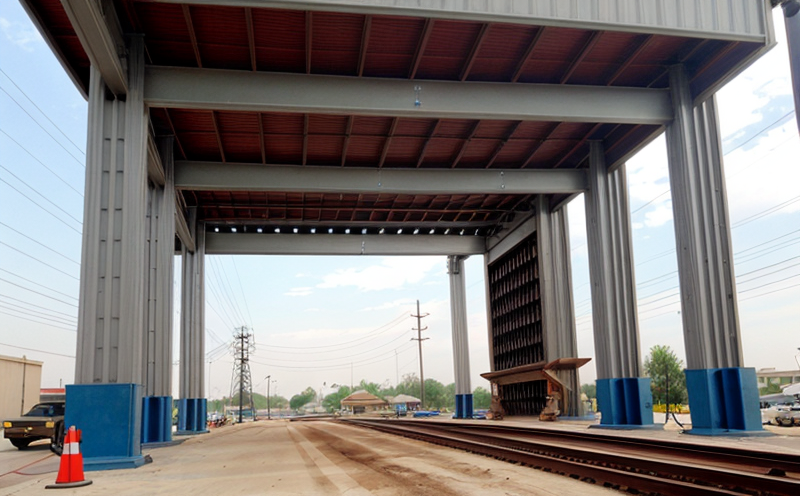ISO 1183 Density Testing of Composite Materials
The ISO 1183 standard provides a method for determining the density of composite materials used in aerospace and aviation applications. This test is crucial for ensuring that components meet stringent quality and safety standards, as even small deviations can affect the performance and durability of aircraft structures.
Composites are widely employed in aerospace due to their exceptional mechanical properties, such as high strength-to-weight ratios and corrosion resistance. However, accurate density measurement is essential for proper design and manufacturing processes. The ISO 1183 test offers a standardized approach that ensures consistency across different materials and laboratories.
The procedure involves measuring the mass of a sample and its volume displacement in water. This method provides an accurate determination of the apparent density of composites, which can vary depending on factors like porosity, voids, or internal structure. Properly conducted ISO 1183 tests help manufacturers ensure that their products comply with international standards.
Understanding the density of composite materials is vital for several reasons:
- To verify compliance with design specifications and regulatory requirements,
- To assess the quality of raw materials before processing,
- To monitor process control during manufacturing,
- To evaluate the effectiveness of post-processing treatments.
By adhering to ISO 1183, laboratories can provide accurate density data that contribute to the overall integrity and safety of aerospace components. This is particularly important in sectors where even minor discrepancies could lead to catastrophic failures.
The test's precision also supports research and development efforts by providing reliable baseline data for new composite formulations or modifications. In addition, consistent testing methods across industries ensure comparability between different materials, facilitating better material selection and optimization.
For R&D engineers and quality managers, accurate density measurements are indispensable in ensuring that products meet stringent aerospace standards. This test can be particularly useful when dealing with complex composites where uniformity is critical for performance.
Why Choose This Test
- Ensures compliance with international standards,
- Provides accurate data for design specifications,
- Sustains quality control during manufacturing processes,
- Supports R&D in optimizing composite materials.
The ISO 1183 test is a cornerstone of aerospace and aviation testing, providing essential information on the density of composite materials. By choosing this test, laboratories and manufacturers can ensure that their components meet stringent quality and safety standards, thereby enhancing product reliability and performance.
Quality and Reliability Assurance
In the aerospace industry, where even the slightest deviation in material properties could have severe consequences, ensuring accuracy is paramount. ISO 1183 density testing plays a critical role in this regard by providing reliable data that supports quality assurance initiatives.
Accurate density measurements contribute to better process control during manufacturing, allowing for early detection of any inconsistencies or defects. This not only improves the overall quality of products but also reduces the risk of costly rework and waste.
The test's precision is particularly beneficial in research and development environments where new composite formulations are being evaluated. By providing consistent and accurate data, ISO 1183 helps engineers make informed decisions about material selection and process optimization.
Additionally, by adhering to this standard, laboratories can ensure that their testing methods are consistent with those used by other reputable institutions. This uniformity fosters trust among stakeholders and facilitates effective collaboration across the industry.
Use Cases and Application Examples
The ISO 1183 density test is widely utilized in various aerospace applications, including:
- Airframe components like wings, fuselages, and landing gear,
- Turbine blades for engines,
- Fuel tanks and pressure vessels,
- Structural elements for commercial aircraft.
In these critical components, accurate density measurement is essential to ensure that materials perform optimally under the harsh conditions of flight. By using ISO 1183, manufacturers can verify that their products meet the required specifications and contribute to the safety and efficiency of aerospace vehicles.
For example, in turbine blades, even small variations in density could affect aerodynamic performance or alter stresses during operation. Ensuring uniform density across all components is crucial for maintaining engine reliability and longevity.





